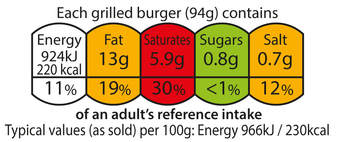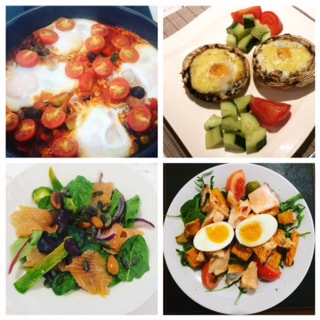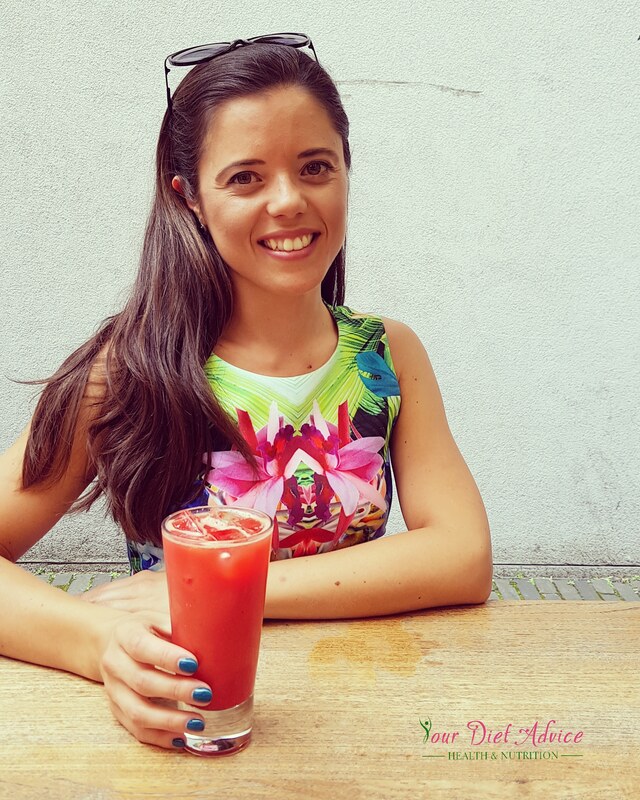 Image from https://www.bupa.co.uk/health-information/directory/f/food-labelling Image from https://www.bupa.co.uk/health-information/directory/f/food-labelling Learning how to eat smarter and healthier can help you to lose weight and live longer. On my consultations, I teach my clients how to adopt healthy lifestyles, not just simply how to follow a diet plan. Learning new and healthy habits will help you to maintain your healthy weight for the rest of your life without you making much effort. In this post, I will give you some tips that you should adopt if you want to have a healthy lifestyle. Remember that, small changes repeated over time, brings great results. Sometimes, it requires a great effort at the beginning, but after a while, it will come to you naturally. 1 – Always have breakfast. You probably heard that breakfast is the most important meal of the day. This is because of the long period of starvation during the night. To have breakfast could be challenge for those who don’t have appetite in the morning however, you will find that having breakfast will boost your energy levels and control your appetite for the rest of the day. If you normally don’t have breakfast, try to introduce just a piece of fruit or an yogurt, within 30 minutes after waking up. After a while, you will feel more appetite and by then, you can add a slice of wholemeal toast and a tablespoon of peanut butter to your breakfast, for example. 2 – Snack smarter. Snacking between main meals helps you to keep you energy levels up, maintaining the blood sugar constant in your body. However if you snack when you are not hungry or if you snack high fat and sugary foods, you can easily put on weight. You should feel hungry, usually 3h/4h after your main meal. If you are spending your day away from home, bring your snacks with you. In this way, it’s more likely that you eat healthy. Here are some examples of healthy snacks:
3 – Get enough sleep. Many studies have suggested that those who sleep less than 6h per night have irregular eating habits, snack more, and are more likely to eat unhealthy foods. Other study found that not getting enough sleep, makes you crave sugar more to try to compensate your low levels of energy. To keep your blood sugar in balance, try to get at least 7 hours of sleep each night. 4 – Have balanced main meals. A balanced meal should consist in one source of carbs, preferably wholegrain, a source of protein and a source of vegetables. Having the main three groups of foods represented in your plate, will give you the energy, protein, vitamins and minerals you body needs to function well. Try to vary as much as you can, eating different kind of foods everyday. Each particular food will have different health benefits. The proportions that these groups of foods should occupy in your plate are: ¼ plate of protein component (lean meat, fish or eggs), ¼ plate of carbs (wholegrain rice, or pasta or potatoes) and ½ plate of vegetables. 5 – Stay away from sugary and fatty foods. Not all fat is bad for you, however you should pay attention to saturated fat, in particular. This fat is normally found in foods like crisps, chips, cakes, cookies or biscuits, butter, larder and meat products, like sausages and bacon. Too much sugar or saturated fat, or the combination of both, can have negative effects in your health. Usually, these kinds of foods are also energy dense, this means they contain a large amount of calories in a small portion of food (1g fat contains 9Kcal). You don’t need to eat a large amount of these foods to rapidly eat more energy that you need. This can then, contribute for the weight gain. UK health guidelines recommend that: the average man aged 19-64 years should eat no more than 30g of saturated fat a day; the average woman aged 19-64 years should eat no more than 20g of saturated fat a day. Sugar is usually hidden is most of the foods. Reading the list of ingredients can help you to make smarter and healthier choices. Foods like yoghurts, ketchup, sauces, juices, fizzy drinks, syrups, biscuits, cakes, breakfast cereals could contain lots of sugar. Sugar can also have different names on a label of a product. Always read the ingredient list and look for these words: brown sugar, corn sweetener, corn syrup, dextrose, fructose, fruit juice concentrate, glucose, high-fructose corn syrup, honey, invert sugar, lactose, maltose, molasses, raw sugar, sucrose, syrup and table sugar. The new advice says children aged 11 or over and adults should consume no more than seven teaspoons of added sugar a day – 30g, equal to less than a single can of Coca-Cola, which contains 39g. Children should consume much less than that. 6 – Use the traffic light system to compare products and to make healthier choices. On the front pack of the label of the products there is nutrition information for calories, fat, saturated fat, sugar and salt. The ‘traffic light’ system uses green, yellow or red indicators to show as to whether the product has low, medium or high content of the above ingredients and nutrients. Comparing similar products using the traffic light can help you to choose healthier options and control your calorie intake. I invite you to adopt at least one of these recommendations to eat smarter and healthier. I recognise that adopting all new habits at once could be difficult. However if you adopt at least one of these at each time, you will see a massive positive change on the way you feel. Ultimately, you can see your weight dropping on the scale and gain more years of life. If you would like to read more, see the links below. Bibliography: https://www.webmd.com/diabetes/sleep-affects-blood-sugar https://www.nhs.uk/Livewell/Goodfood/Pages/food-labelling.aspx#Nut
6 Comments
Vera Pereira
15/1/2018 12:34:28 pm
great advice. when i first started my diet was quite difficult to eat breakfast but a year later amd now i cant leave the house without my breakfast.
Reply
Joana Jardim
15/1/2018 01:34:40 pm
Hi Vera, thank you for your comment. It's a matter of habit, having breakfast in the morning. Well done for adopting this healthy habit :)
Reply
13/3/2021 01:02:01 am
Great article! Couldn't agree more with your points! Look forward to the upcoming posts :)
Reply
Leave a Reply. |
Categories
All
AuthorHi, I'm Joana, a Portuguese registered dietitian in the UK. I am passionate about helping others achieving their health goals. Archives
June 2024
|



 RSS Feed
RSS Feed